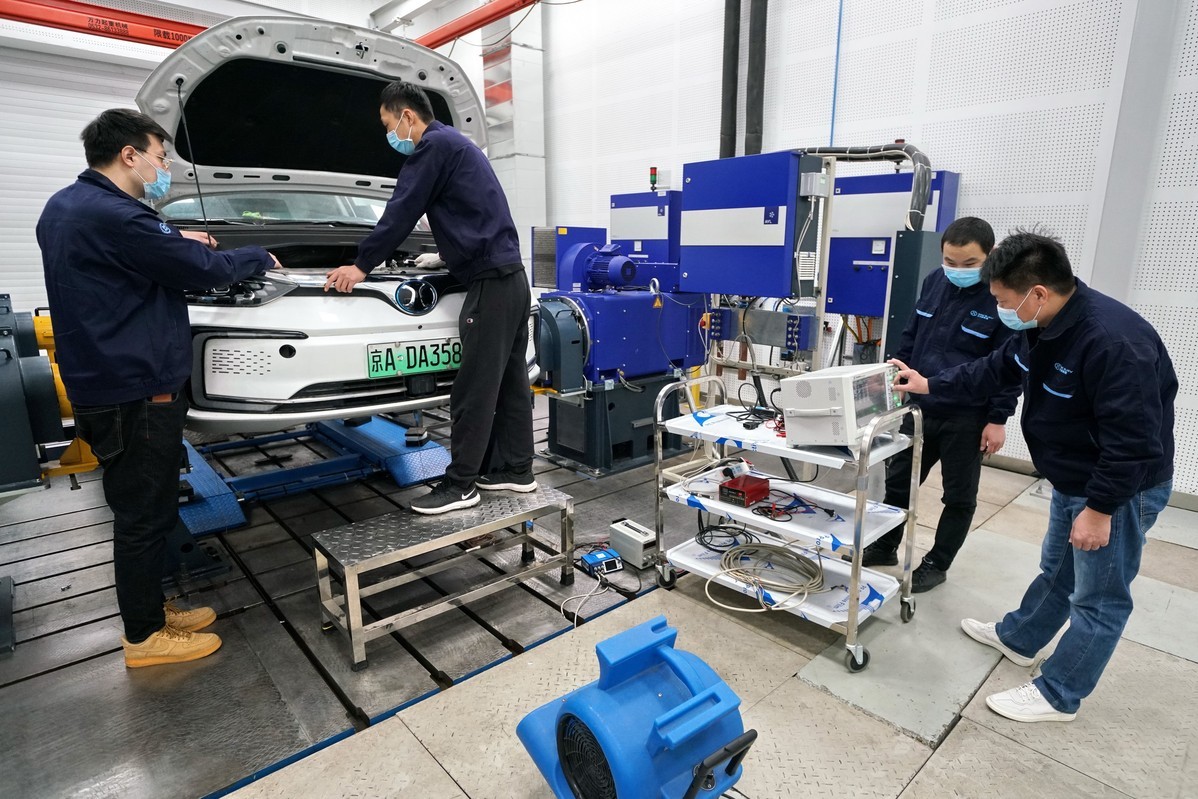
New energy vehicle models are tested at BAIC BJEV in Beijing on April 3. (Photo: Xinhua)
While overall electric vehicle sales are expected to drop in 2020 due to COVID-19, they will continue to rise after the contagion comes more fully under control, according to a report by BloombergNEF.
Automakers in China are accelerating their EV launch plans as China seeks to further promote the development of green vehicles and related sectors. While COVID-19 will delay some of these, there will still be over 500 different EV models available globally by 2022, according to Electric Vehicle Outlook 2020, BloombergNEF's annual forecast report.
Falling battery prices, improving efficiency, rising sales to new markets and a growing charging infrastructure will all contribute to the expected recovery, it said.
While the share of electric vehicle sales is still small, it is rising fast. By 2040, over half of all passenger vehicles sold will be electric. Markets like China will achieve much higher penetration rates, it said.
Pure battery electric vehicles will account for the majority of these, but plug-in hybrids will also play a role over the next 10 years before fading as pure electrics continue to get cheaper. Despite the rapid growth, there will be 1.4 billion passenger vehicles on the road worldwide in 2030 and EVs will account for just 8 percent of these. This ratio will rise to 31 percent by 2040 as fleet makeups slowly transform, it said.
China accounts for the largest share of global EV sales as it looks to reduce energy imports, clean up urban air quality, build its domestic auto industry and attract manufacturing investment.
This can also be seen through the efforts of the country's electric utilities. To comply with increasingly stringent regulations in the country, electric utilities in the country are also investing in the charging pile sector nationwide. State Grid Corp of China said earlier in April that it would invest 2.7 billion yuan ($383 million) to set up 78,000 charging piles across the country.
Distributed across 24 provinces and municipalities-including Beijing, Tianjin and Jiangsu province-53,000 charging piles will be located in residential areas while 18,000 will be for public use, it said.
China vowed that it would further promote EVs and the construction of charging piles to accelerate consumption demand and facilitate industrial upgrading, according to the Government Work Report submitted to the national legislature for deliberation in late May.
BloombergNEF said battery efficiency continues to improve, together with rising average battery energy density and improving maximum EV charging speeds-all of which contribute to increasing EV sales.
Policies pushing the auto sector toward lower emissions, stricter fuel economy standards, quota systems and urban policies all play a growing role, it said.


